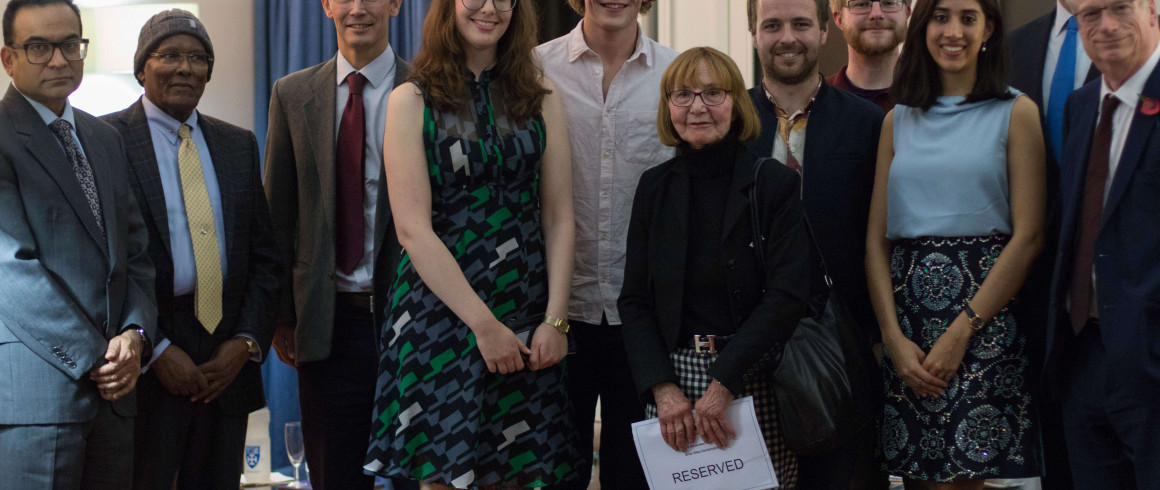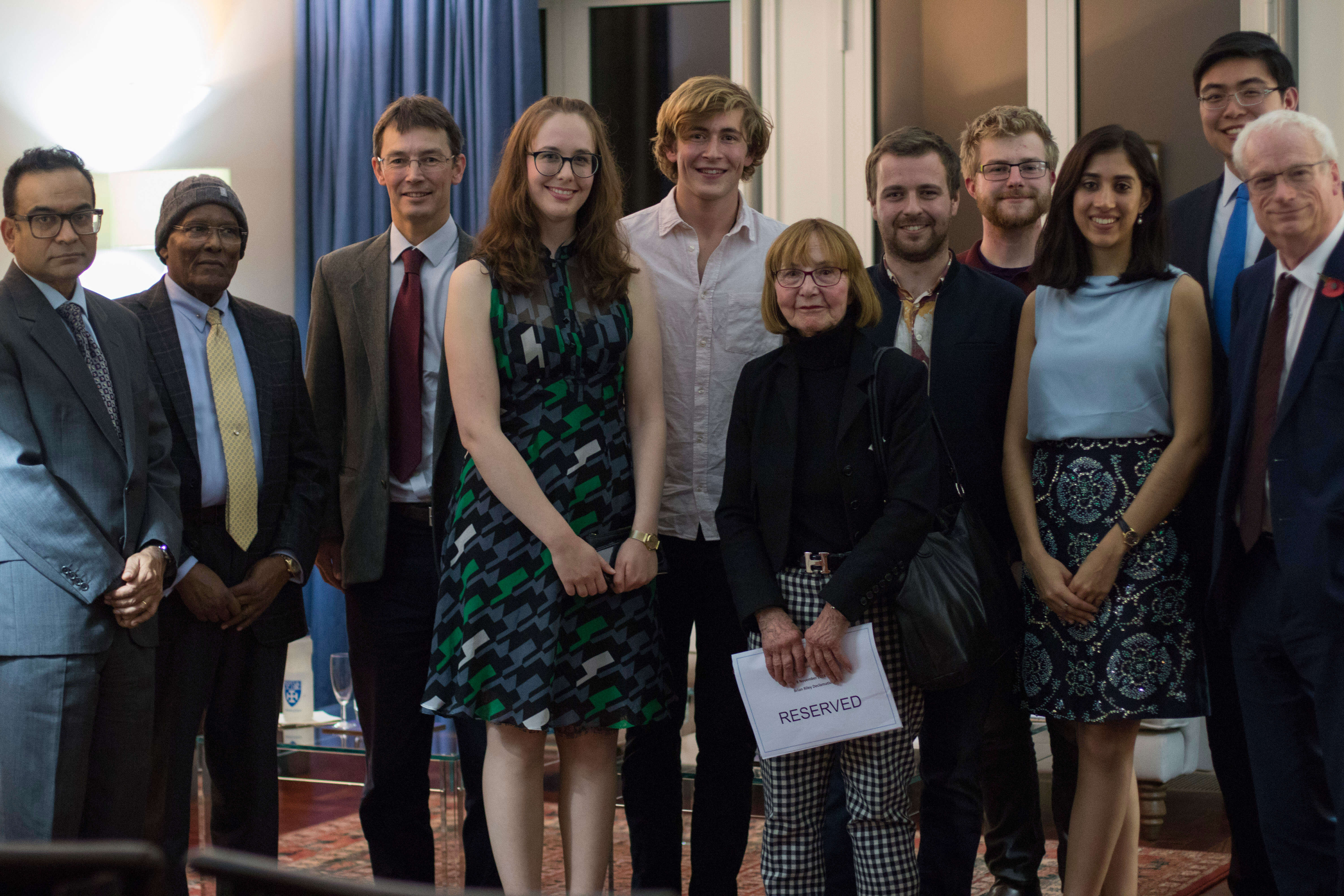Riley Declamation Prize 2018
Identity, language, diversity, memory, and the importance of the arts were all up for discussion at the 2018 Riley Declamation prize.
The 2018 finalists and judges
The prize this year was awarded to Toby Parsloe (2017). Toby’s exploration of the meaning of the phrase ‘We are Berliners’ was intelligent, concise, and confident. He asked what it means in today’s context to be part of a city that embodies freedom and tolerance, and has for so long been a home to outcasts. To embrace others, he argued, we must allow ourselves to change in the process.
This year the quality of declamations was so high that a second place prize was awarded in addition to first place.
Second place was awarded to Jonathan He (2018). Jonathan spoke about identity and the binary nature of language, location the primal-civilised binary in us/them dichotomies and Europe’s imperial past. Every generation asks ‘who are we?’, but attempts to artificially construct national identities on the basis of rigid binaries have historically ended in violence.
All the finalists were highly commended by the judges for the quality of their speeches.
First year undergraduate Toby Chesser (2018) spoke passionately about European diversity. The protection of diverse cultures, languages, and values are worth sacrificing a little of the security and stability that comes with integration, he argued. Toby rejected the idea of a “peaceful world of grey”, preferring instead to preserve the EU as a bastion of living culture.
Law MPhil student Jennifer Tridgell (2018) spoke about collective memory. She compared case studies from Poland and Ireland in order to demonstrate how collective memory can be mobilised to support, in Poland’s case, right-wing policies, and in Ireland’s case the need to protect peace and free movement post-Brexit. Jennifer argued that through collective memory we should bow to the past, not be bound to it.
PhD candidate Shruti Sharma (2015) gave an impassioned defence of the arts. Art, she argued, is like medicine for the soul, and our access to it must be protected through difficult times. Her talk was particularly pertinent given that it was the Master of Pembroke, Lord Chris Smith, who as Secretary of State for Arts and Culture was responsible for securing free admission to Museums in the UK.
The final speaker was Isaac Wilkinson (2016), current Junior Parlour President and third year Theology undergraduate. Isaac argued that to call the Brexit referendum result a protest vote would be a ‘misnomer most foul’. To call it a protest vote would be to dismiss the complex reasons people voted leave, the genuine problems in need of solving, and the fact that the referendum looked so different to how we are used to UK votes looking.
The Riley Declamation Prize is made possible through the generation of the Riley family. It was established in memory of Brian Riley (1959), to encourage communication skills and reward excellence in both written and oral presentation. Mr Riley read Modern & Medieval Languages and Oriental Studies at Pembroke, specialising in German, French and Chinese. He maintained an interest in foreign languages and cultures throughout his life. The prize is awarded annually to a student who can show excellence in both speech writing and delivery. The speech must be on a topical European theme, and it must last between 10 and 15 minutes; beyond that the details are decided by the entrants.

